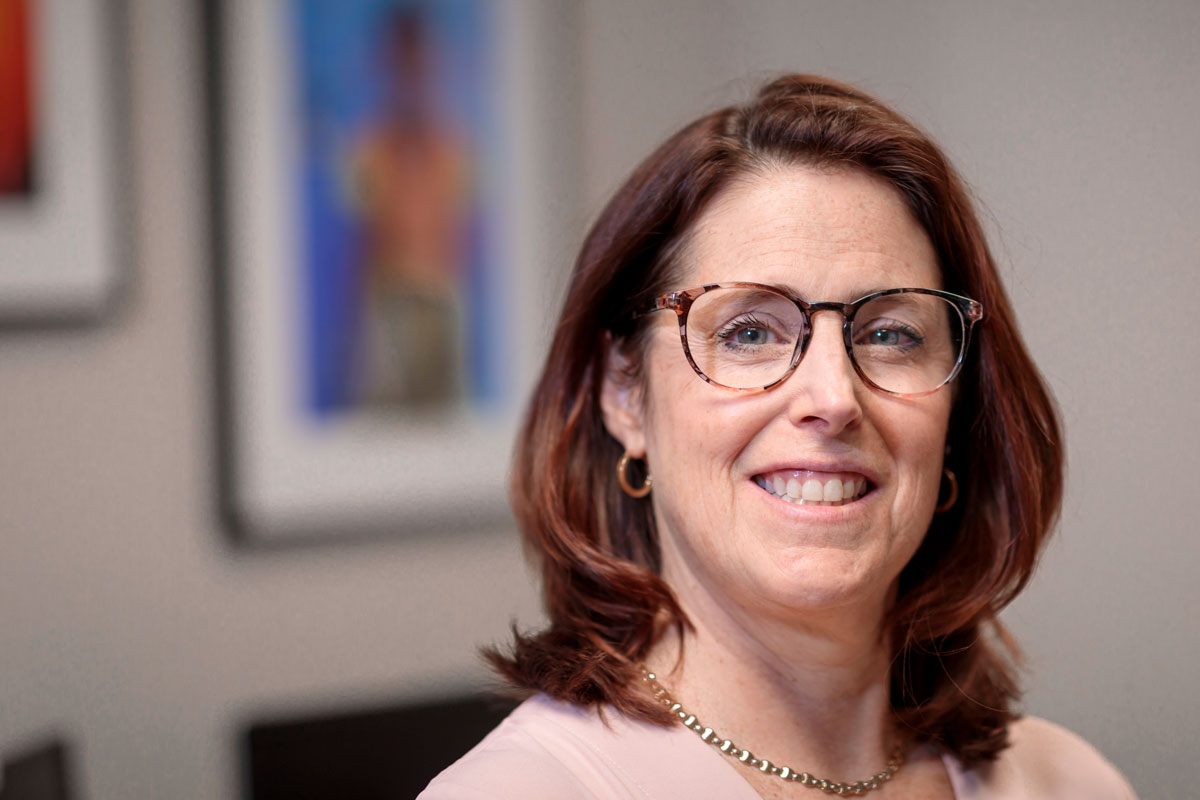Meet Theresa “Tracy” Spitznagle, PT DPT, WCS

Tracy, the 2011 winner of the Elizabeth Noble award, is currently working with Washington University in St. Louis Missouri. Her time is split between treating in the clinic, research, teaching and heading their Women’s Health Residency program. Talking with Tracy is like talking to an instant friend – she is kind, warm and clearly passionate about her work – both in treating patients as well as mentoring the next generation of therapists.
Tracy came to women’s health during a time of personal transition. Determined to spend more time with her family, she had moved to home care and part time teaching at Washington University. During a staff meeting, administration stated they were looking for physical therapists to train in pelvic floor dysfunction and asked if anyone is interested in training in it. Tracy notes her first reaction was and instant “yes” followed by, “Oh my god, it looks like I’m going to be full-time again! Will my family be ok?” This new career path proved to be her new passion. Since then she has published multiple articles, as well as developed and maintained the Women’s Health Residency program. She has been active in the Section on Women’s Health in many different roles.
Dr. Lewis Wall, a urogynecologist and social anthropologist, joined the staff of Washington University, and was soon working with Tracy to help educate medical staff in Africa on pregnancy and lower quarter function. Tracy is now helping to develop the Master’s Level physical therapy curriculum for Mekelle University in Ethiopia – which will include a strong women’s health/pelvic floor component. Tracy was also appointed to the Worldwide Fistula Fund Board of Directors. The Worldwide Fistula Fund is nonprofit health organization devoted to the treatment and prevention of obstetric fistulas. Tracy has been to Africa five times to help develop programs and train medical staff and treat patients.
I asked Tracy the best advice she could give to a new graduate with an interest in women’s health. Her answer, “Find a mentor. Also, know that for every stage of life, your interests may shift and change and it’s ok!” Her other suggestion was to “take care of yourself”. Burnout in PT is high and she gave some excellent suggestions for taking care of yourself: doing things that are not PT related, finding friends that don’t talk about PT and plan time away by yourself or with a significant other or friend.
Towards the end of our conversation, Tracy offered one more excellent piece of advice, “A very successful women’s health clinician keeps an open mind. Patients need us to keep looking at them with fresh eyes. Keep challenging your inherent bias.”


